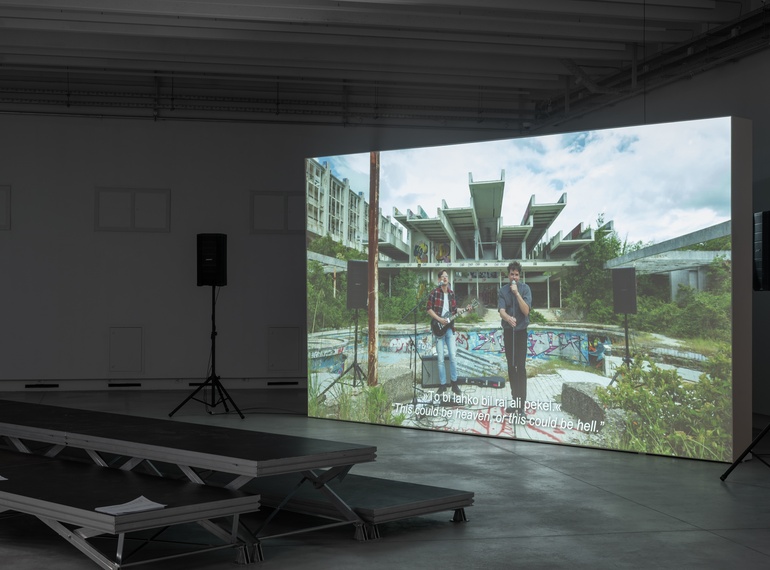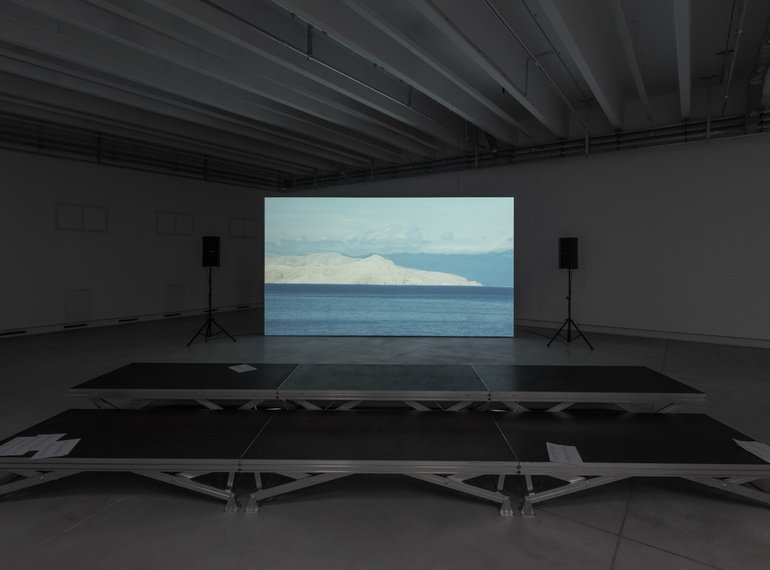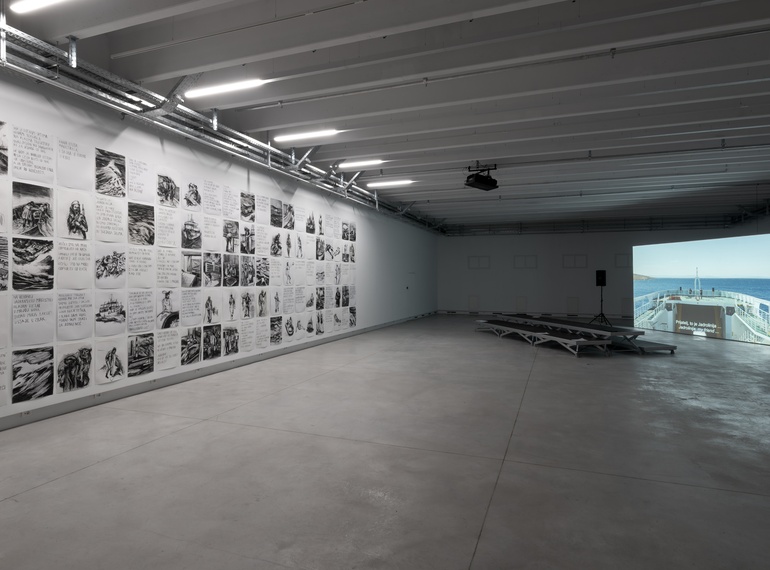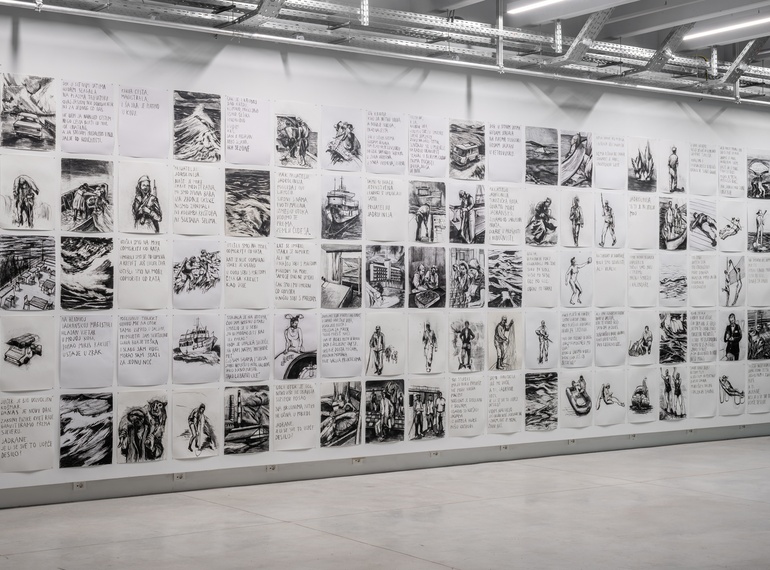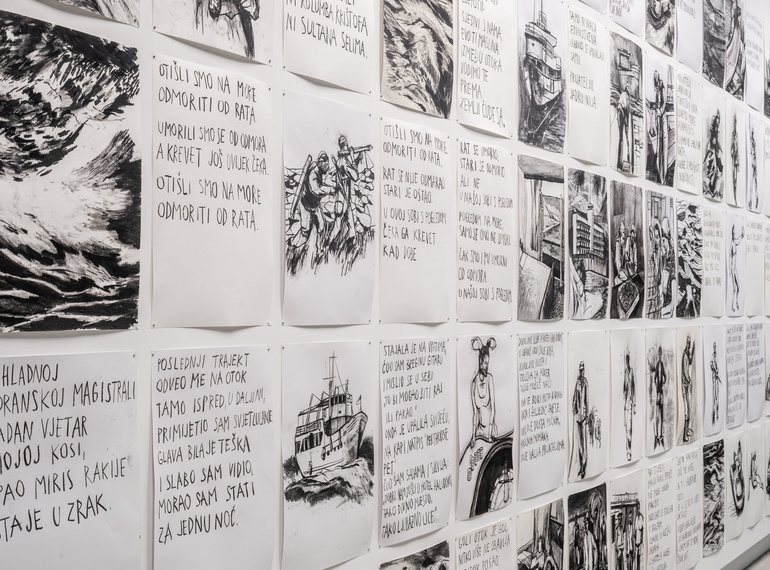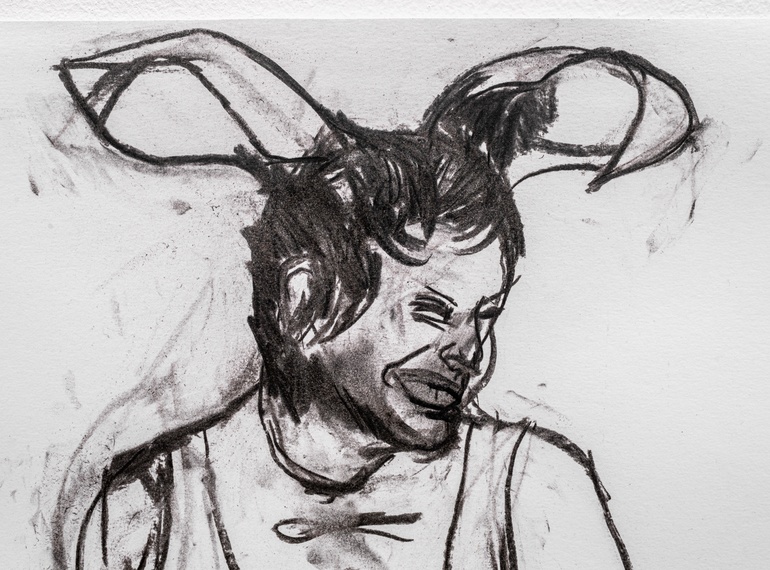Mark Požlep
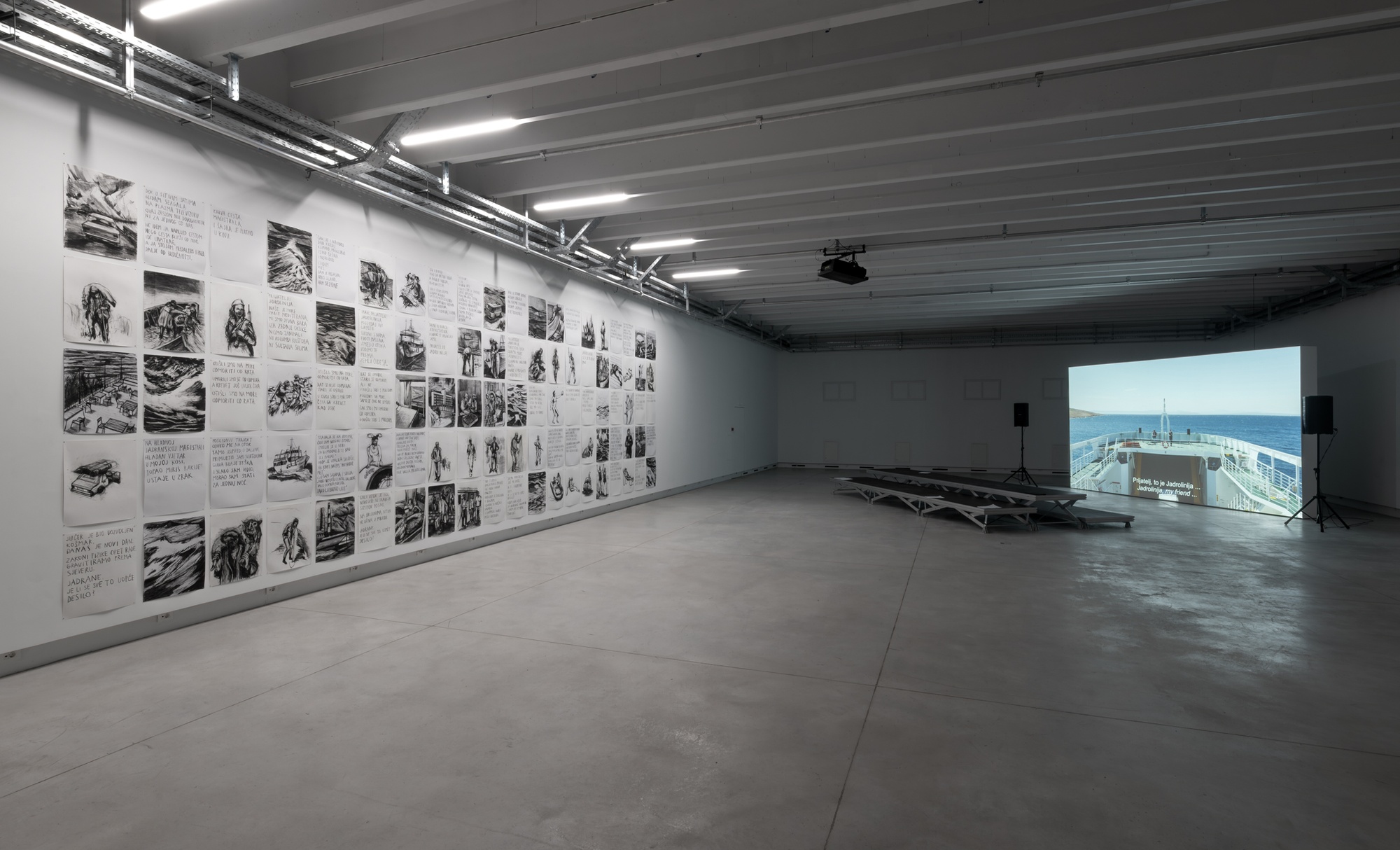
Curated by Alenka Gregorič
The entanglement of events, their causal correlation that opens up endless possibilities of unforeseeable outcomes and epilogues (known as the butterfly effect in chaos theory) is found in all areas of life. Art has the proclivity – or is even virtually expected – to search for, comb through, and interpret such data, creating multilayered narratives. Like most of the projects by the Ghent-based artist Mark Požlep, his latest, Permanent Vacation, conceived and realized for his exhibition at the Cukrarna Gallery, raises a series of questions to present his findings – in this case, about the Adriatic Highway. Did the highway, constructed between 1945 and 1966 with the aid of the Yugoslav Army, US loans, and 2,050 tons of TNT, alter the socioeconomic face of the region? Did the development of social tourism lead to a two-week paid vacation becoming a constitutional right in 1965? Was dynamite fishing used to meet the demands of the hotels and other tourist industry infrastructure developed for the post-1970 mass tourism boom? Was nudism a consequence or cause of the flourishing tourism industry? Did certain musical genres survive thanks to the musicians making a living playing on hotel terraces in the evenings? Did, in addition to enabling fast travel, the building of this – at the time vital − traffic link bring in its wake the construction of certain factories and industrial plants that are now highly controversial?
The road snaking along the Adriatic coast from Trieste to the Montenegro-Albania border may seem nostalgic today, but in its time, it brought myriad turbulent changes to the coastal region. Some of them were positive in that they brought economic development, entailing, however, inevitable deviations from time-honored traditions in the lives of the locals, undermining certain centuries-old social mores. The complex story of the Adriatic Highway took Požlep on a long journey and deep into research that involved experts from other fields and first-hand accounts of witnesses who provided him with a wide range of information.
As he had done before, Požlep again joined forces in research with the economist Igor Feketija, and together they compiled data on the economic and social changes and impacts during and after the construction of the road. To present the various stories and facts at the exhibition, the artist opted for two media: performance and drawing. Požlep’s poetic interpretation takes us into a world of blurred boundaries between reality and chance as the artist’s intimate experience, a world where the message of coexistence and respect for difference takes precedence over a simple presentation of facts. The artist thus foregoes displaying the collected materials, objects, tools, and ephemera, leaving only fragments and metaphors.
The facts about the construction of the highway and its effects that changed the local context so drastically, as well as having socioeconomic impacts at the level of the federal state, are summed up in the poems written by the poet and writer Muanis Sinanović on the topics provided by Požlep: "The Adriatic Highway," "The Dynamite Fishers," "Hotel Haludovo," "Nudism," "The Gastarbeiters," "The Jadrolinija," and "Refugees." The poems were set to music by Gašper Piano, who performed them together with Požlep in a series of concerts at deliberately chosen, meaningful sites along this 1,006-kilometer road. The footage of these concerts has been edited into a video document, so that exhibition visitors can also become concert goers. The other part of the synthesis of the artist’s research and interpretation takes the form of just under 100 charcoal drawings. Coupled with the songs, the representations of the soldiers building the road, dynamite fishers, nudists, fishermen, tourists, and the sea round off the story, bringing to mind the images imprinted on our collective memory, the images of the people closely involved with this highway that now meanders, lonely, abandoned, through five countries.
Lyrics: Muanis Sinanović; Music: Gašper Piano; Voice workshop: Leja Jurišić; Camera and editing: y0yproduction; Sound mastering: Julij Zornik
Opening hours
Tuesday to Sunday: 10.00–19.00
Tickets
Adults: 3 €
Students, retirees, visitors with disabilities: 2 €
Family ticket: 8 €
Admission free: children 7 and under, ICOM, PRESS
